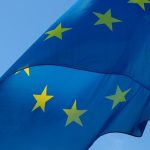The EC has two months to assess these plans that set out the reforms and public investment projects that each Member State plans to implement with the support of the Recovery and Resilience Facility (RRF).
The rules envisage that member-states can request a reasonable extension of time for the assessment of national recovery and resilience plans after the documents are submitted, the spokeswoman said.
The extension has been requested by Croatia, Slovenia, Poland, Sweden and Romania, Wieczorek said.
The extended time frame is perceived as an opportunity to settle some outstanding issues, she said, declining to specify those outstanding issues that are the cause for the requests from the five members.
The Commission received Croatia’s plan on 15 May, and Zagreb “has requested a total of almost €6.4 billion in grants under the RRF”, the EC says on its website.
The Croatian plan is structured around five components: green and digital economy, public administration and judiciary, education, science and research, labour market and social protection, healthcare. It also encompasses one initiative on building renovation. The plan includes measures to improve business environment, education, research and development, energy-efficiency in buildings, zero-emission transport and the development of renewable energy sources. Projects in the plan cover the entire lifetime of the RRF until 2026. The plan proposes projects in all seven European flagship areas, the EC added.
For more on politics in Croatia, follow TCN’s dedicated page.










